Hair Transplant in Tunisia
Search and Compare the Best Clinics and Doctors at the Lowest Prices for Hair Transplant in Tunisia
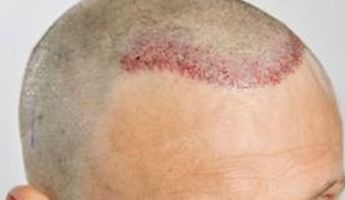
Find the best clinics for Hair Transplant in Tunisia
With Medijump you can browse 3 facilities offering Hair Transplant procedures in Tunisia. The cheapest price available is $3,196 in Mahdia. And for the cheapest price globally, prices start from $126 in Egypt.
Hair Transplant in Mahdia
Price: $ 3,196
Egypt offers the best prices Worldwide
Price: $ 126
From 4 verified reviews
Samir Derradji, 18 March 2018
Hello I follow sick dalger Algeria I ask you a preforma for an opairation on the colon .Thank you
From 9 verified reviews
Ibtyhel Ben bassine, 19 April 2019
I slept my little girl on Thursday, March 8, 2018, was at Top, my gygy, the nurses .... they put me in a calm and clean environment with a service of excellence .. thank you prts and especially pr Dr. hichem
From 10 verified reviews
Ahlem Feryel, 01 July 2020
Love one that Lisa advises me to remove face hair
- Home
- Tunisia
Compare Before & After Photos of _procedure_photos.phpHair Transplant
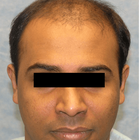
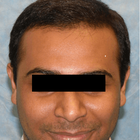
Front view
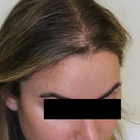
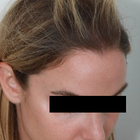
Half-side view
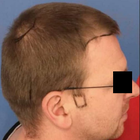
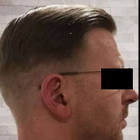
Full-side view
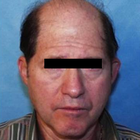
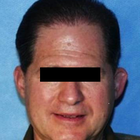
Front view
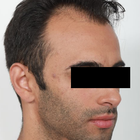
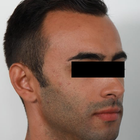
Half-side view
WHY US?
At Medijump, we're making medical easy. You can search, compare, discuss, and book your medical all in one place. We open the door to the best medical providers worldwide, saving you time and energy along the way, and it's all for FREE, no hidden fees, and no price markups guaranteed. So what are you waiting for?

Free

Best Price

Widest Selection

Risk-Free
What you need to know about Hair Transplant in Tunisia
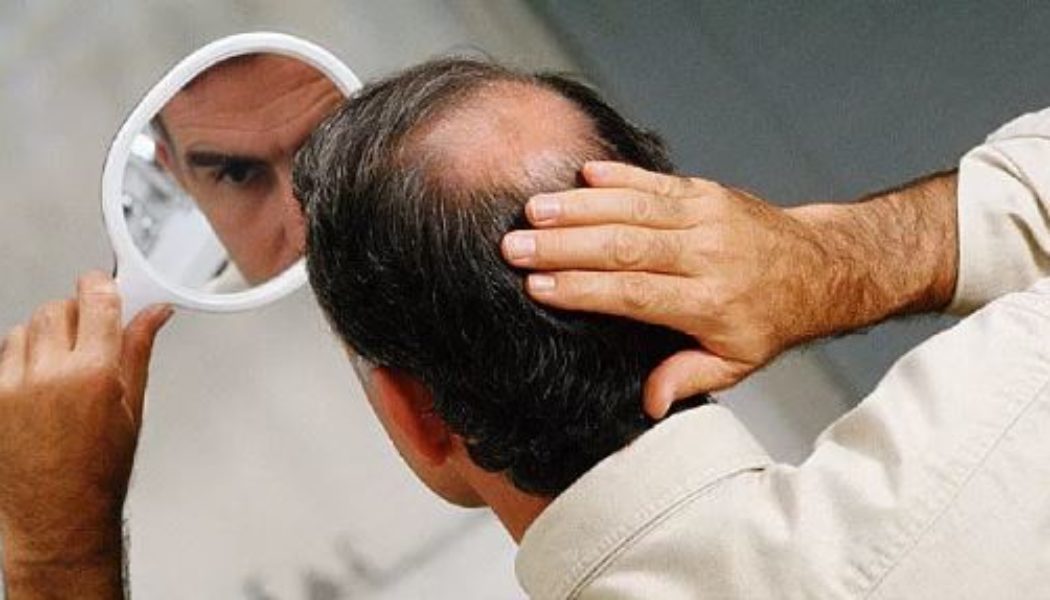
Hair Transplantation, also known as hair restoration surgery, is the surgical process of moving hair follicles from one part of the body that is rich in hair (known as a donor site) and embedding them at the the bald area of the head (recipient site). The medical course of action that aims at addressing hair loss issues and improving aesthetics. While there are many causes of hair loss, the most common reason, especially for men, is genetics. Hereditary hair loss as men age is the number one leading factor of baldness.
It is a minimally invasive procedure, performed under local anesthetic and is most commonly used to treat male baldness, but the technique can also be used to restore eyelashes, eyebrows, beard hair and to fill in scars. The procedure usually lasts between 4 to 8 hours, depending on the number of grafts needed. This procedure is a long-term solution to hair loss, with most patients experiencing significant improvement in hair growth after six months to a year.
Why do people experience hair loss?
We lose an average of 100 hairs a day, however, these hairs are immediately replaced by new hairs growing at the same time. Hair loss can occur suddenly or gradually and it may affect your scalp or your entire body, depending on what’s causing it. Other causes of hair loss may include:
- Stress - a lot of people may experience hair thinning for several months due to a physical or emotional shock. However, this type of hair loss is only temporary.
- Certain Hairstyles and treatments - hairstyles that pull your hair like tight pigtails, ponytails or braids can actually cause traction alopecia. Permanent hair treatments and hot oil treatment may also lead to hair loss; these hair treatments cause inflammation to the hair follicles. If there is scarring, hair loss may be permanent.
- Radiation Therapy - for example, during cancer treatment.
- Certain medical conditions and hormonal changes - in women, hormonal changes due to pregnancy, childbirth menopause or thyroid problems may cause temporary or permanent hair loss. As for medical conditions, hair loss may be due to alopecia, scalp infections like ringworm or a hair-pulling disorder known as trichotillomania.
Sudden hair loss may also be a sign of a specific medical condition that will require treatment. You will need to consult your doctor if you experience more than your usual hair loss whenever you are combing or washing your hair and also if you encounter a sudden patchy loss of hair.
A hair transplant is a common treatment performed on people who are experiencing baldness due to aging and heredity factors. However, if you are completely bald with absolutely no hair left, then this type of treatment may not be applicable for you, as you won't have sufficient donor hair to supply.
What is the cost of Hair Transplant in Tunisia?
The cost of Hair Transplant in Tunisia is typically influenced by various factors. These may include the experience and reputation of the surgeon, the complexity of your case, and the total number of grafts needed. Moreover, the pricing strategy followed by the medical establishment also plays a significant role. Some clinics charge based on the number of grafts transplanted, while others might price the procedure as a package. The exact price can therefore only be determined in consultation with a trusted clinic. While it can appear costly to some, the Hair Transplant is an investment in one's appearance and self-confidence.
What Does The Procedure Involve?
The hair transplant procedure involves taking hair from your Donor Site and transferring it to the area(s) lacking in hair, the Recipient Site, and a local anesthetic will be applied before the procedure begins to limit any discomfort.
There are two main methods used in a hair transplant procedure:
- Follicular Unit Transplantation (FUT) - strips of tissue will be removed from your donor area, these strips will be cut into individual follicular units. Small cuts will be made on your scalp where the follicular unit grafts will be placed. This method is becoming less popular.
- Follicular Unit Extraction (FUE) - individual hair follicles will be directly extracted from your donor area and moved to your recipient site using a specialist microsurgical needle. FUE is now the preferred technique for hair transplants as it will not leave a linear scar at the back of the head.
Procedures are undertaken by a fully qualified technician and usually involve the extraction of around 3,000 grafts, going up to 4,000. Any more, and it will likely require two separate sittings to complete.
How Long Should I Stay in Tunisia for a Hair Transplant Procedure?
Hair transplants are usually performed as an outpatient procedure. Thus, you will be able to go back to your hotel immediately after. Both methods used for Hair Transplant treatments usually take 4-8 hours to complete. With FUE technique, there are no stitches or staples to be removed, so you won't need to stay in Tunisia for long after the procedure, just allow a day or two to be sure before traveling home.
You should expect to pay the clinic another visit the day after the treatment so the doctor can remove the bandage, examine the areas of intake and transplantation of follicles, before washing your hair using a special technique that you will learn to perform by yourself. Finally, the doctor will provide you with a special shampoo that will help to restore the skin.
What's the Recovery Time for Hair Transplant Procedures in Tunisia?
Your scalp will continue to be sensitive to pain for a few days, during which time you should continue to take the medications provided by the doctor. On top of the pain killers and anti-inflammatory meds, you may also be given antibiotics to lessen the risk of infection, as uncommon as this may be.
You should expect to return to work and your daily routine, including exercise, after 5 days. However, the signs of a hair transplant will remain for at least another 2-3 weeks, at which point the newly transplanted hairs will start to fall out - but don't be alarmed! This is to be expected as you've just had a follicle extraction, so dead hair will simply make way for new hair over the coming weeks and months.
If the average person's hair only grows at a centimeter per month, then it will take some time before you can wear your hair long again. You could expect to display short and consistent hair just 4-6 weeks after the treatment.
What sort of Aftercare is Required for Hair Transplant Procedures in Tunisia?
After the procedure is complete, anti-swelling medication and painkillers will be available and you'll be provided with various essentials to see you through the days immediately following. Post-op items may include; specialist shampoo, lotion, multivitamins, a special hat, a headband, neck pillow, and wound dressing.
Having already been provided with your post-op aftercare products, you may also be offered Platelet Rich Plasma (PRP) Therapy to help stimulate the hair follicles and encourage hair growth. This is where a small amount of blood is taken, rich in plasma, which is then injected into the Recipient Site.
What's the Success Rate of Hair Transplant Procedures in Tunisia?
The success rate for hair transplants is one of the highest, at 98% and is considered the only truly effective remedy for hair loss.
The effectiveness of Hair Transplant treatments is significantly shaped by the surgeon's expertise who executes the process. A seasoned and competent surgeon employs sophisticated methods to prevent harm to the transplanted hair follicles during the process, which leads to a higher likelihood of success. Additionally, the ability of the surgeon to place the grafts in an attractive manner that resembles natural hair growth further enhances the perceived successfulness of the result.
Beyond the competency of the surgeon, the overall health status and lifestyle choices of the patient greatly impact the treatment's effectiveness. Subpar habits such as excessive smoking and alcohol intake can obstruct the recovery process and influence the result adversely. Illnesses like diabetes can also interfere with the likelihood of success.
Consideration of the donor hair's quality is another aspect that may affect the success of the procedure. Generally, those with robust, plentiful hair in the donor region have a higher success rate as compared to individuals with sparse or poor-quality hair. The availability of more follicles for transplantation yields better results. A detailed examination is carried out before the Hair Transplant to verify the quantity and quality of the donor's hair.
Are there Alternatives to a Hair Transplant?
Laser therapy is one alternative to a hair transplant. During this procedure, a low-level laser device will be used as a treatment for a hair loss specifically caused by genetics. This low-level laser with a wavelength of 650 nanometres can actually stimulate your hair growth. However, long term effects for this type of alternative still remains uncertain.
PRP Therapy is another alternative you can consider. This type of treatment will make use of your own blood to promote hair growth. Your blood will be spun in a centrifuge to separate your blood’s plasma component from your red and white blood cells. Plasma contains many growth factors that promote hair growth when injected into the scalp.
Other non-surgical alternatives could include simply shaving all your hair off, trying other hairstyles or using a wig or hairpiece.
How do FUT and FUE Compare?
The two most common techniques used are the Follicular Unit Transplant (FUT) and the Follicular Unit Extraction (FUE). How do they compare?
1. FUT, also referred to as FUSS (Follicular Unit Strip Surgery), involves the removal of a strip of skin from the back of the head containing lots of hair follicles, which is stitched up and hidden by the surrounding hair. Then the strip of follicles is divided into 500-2,000 tiny grafts containing just a few hairs. These are then embedded across the bald area of the head.
2. FUE does not require a strip of skin to be removed, instead, the hair follicles are individually removed from the donor site and positioned across the bald area in tiny slits created by a scalpel or needle.
What are the Risks Associated with Hair Transplant?
Like any surgical procedure, Hair Transplant carries certain risks, although they are relatively rare and usually minor if performed by a skilled and experienced surgeon.
Some potential risks and side effects could include:
- Scarring is the most common side effect (only applicable to FUT)
- Infections
- Temporary loss of sensation around the surgical sites
- Inflammation of hair follicles (folliculitis)
- Temporary scalp pain, itching, and swelling.
- Unnatural-looking hair growth
Whilst the information presented here has been accurately sourced and verified by a medical professional for its accuracy, it is still advised to consult with your doctor before pursuing a medical treatment at one of the listed medical providers
No Time?
Tell us what you're looking for and we'll reachout to the top clinics all at once
Enquire Now

Popular Procedures in Tunisia
Prices Start From $153

Prices Start From $500

Prices Start From $4

Prices Start From $500

Recommended Medical Centers in Tunisia for Hair Transplant

- Interpreter services
- Translation service
- Religious facilities
- Medical records transfer
- Medical travel insurance
- Health insurance coordination
- TV in the room
- Safe in the room
- Phone in the room
- Private rooms for patients available

- Interpreter services
- Translation service
- Religious facilities
- Medical records transfer
- Medical travel insurance
- Health insurance coordination
- TV in the room
- Safe in the room
- Phone in the room
- Private rooms for patients available

- Interpreter services
- Translation service
- Religious facilities
- Medical records transfer
- Medical travel insurance
- Health insurance coordination
- TV in the room
- Safe in the room
- Phone in the room
- Private rooms for patients available

- Interpreter services
- Translation service
- Religious facilities
- Medical records transfer
- Medical travel insurance
- Health insurance coordination
- TV in the room
- Safe in the room
- Phone in the room
- Private rooms for patients available

- Interpreter services
- Translation service
- Religious facilities
- Medical records transfer
- Medical travel insurance
- Health insurance coordination
- TV in the room
- Safe in the room
- Phone in the room
- Private rooms for patients available

- Interpreter services
- Translation service
- Religious facilities
- Medical records transfer
- Medical travel insurance
- Health insurance coordination
- TV in the room
- Safe in the room
- Phone in the room
- Private rooms for patients available

- Interpreter services
- Translation service
- Religious facilities
- Medical records transfer
- Medical travel insurance
- Health insurance coordination
- TV in the room
- Safe in the room
- Phone in the room
- Private rooms for patients available
Hair Transplant in and around Tunisia
About Tunisia
Tunisia is one of the few countries which can cater to everyone and it manages to combine climate, golden beaches, history, and shopping for an “all-around” experience. It has a high standard of healthcare and an excellent reputation for cosmetic surgery. Cosmetic and plastic surgeons are regulated by the Tunisian Ministry of Health and the private clinics have state-of-the-art equipment and English-speaking staff. Tunisia welcomes an ever-increasing number of medical tourists each year, many of whom travel for Hair Transplant procedures. Medical Tourists travel from all across the globe, particularly from Europe and neighboring African countries with an inferior healthcare system. Popular medical tourism destinations outside of the capital, Tunis, include Sousse and Mahdia
Popular Parts of Tunisia
- Tunis, the country’s capital, is overflowing with a history that dates from the 4th Century BC. The city is divided into two parts, the old city known as the medina and the new city (or Ville nouvelle in French). Many tourists visit Tunis to see the Archaeological Site of Carthage which is also a UNESCO World Heritage Site. The beautiful Islamic architecture in medina also attracts many tourists to the city.
- Tozeur is known as a home to an enchanting desert oasis, which was a place to rest and refuel for caravans crossing the Sahara. Another main attraction in the city is the medina, where tourists can find lines of beautiful brick-patterned traditional dessert houses. Chott el Djerid, Sahara’s largest salt pan, is a popular day-trip destination.
- Sousse is located on the coast of the Mediterranean Sea. It offers good beaches with a clear blue sea. The city has been fought over by the Romans, Arabs, and Europeans, giving it a colorful history and culture. Sousse Archeological Museum is one of the most visited sites in the country; it has the second largest collection of mosaics in the world.
- Hammamet is the country’s original tourism resort. The city has beautiful gardens filled with oranges, lemons, and other citrus plants. It also has wonderful sandy beaches with crystal clear water. Just like any other city in Tunisia, this city is also brimming with interesting histories. Sites such as The Gafsa Museum and Bardo Museum will give insights about the Islamic faith and culture.
- Douz, also known as “the gateway to the Sahara.” Tourists who want to experience the Sahara Desert come to this city. Take a camel trip or a 4-wheel-drive into the Sahara or see the Museum of the Sahara that has an interesting collection portraying traditional Saharan life.
Weather and Climate in Tunisia
The North of Tunisia has a subtropical Mediterranean climate with mild rainy winters and hot summers. The South and inland areas have a tropical desert climate.
The weather is relatively comfortable throughout the year. Summer starts in June and lasts until August. The average temperature is between 28 °C to 32 °C with July and August being the hottest months. The heat is not as bad on the coast because of the seaside breeze. Be aware that July to September is the jellyfish season.
The heat decreases in autumn and the weather is somewhat more comfortable. There are occasional rain showers in September. The temperature in October can be like summer during day time, but cold at night. October has more rain than September. The season lasts for three months from September to November with an average temperature of around 19 °C to 29 °C.
The weather in winter can be uncertain. The average temperature is between 16 °C and 18 °C, but it can drop to 7 °C at night and below 0 °C in highlands and deserts and a clear sky is rare during this season.
Spring comes in March and the temperature can rise to 20 °C. Mornings and nights are cold; there is still a high probability of rains and thunderstorms at the end of this season.
Getting Around in Tunisia
Tunisia has several international airports. The main airport is Tunic-Carthage International Airport. It has international connections with major European countries and the Middle East. The airport is the hub for Tunisair, Tunisair Express, and Nouvelair. Other airports that have international flights are Enfidha-Hammamet, Monastir Habib Bourguiba, Djerba-Zarzis, and Tabarka-Aïn Draham.
Taxis and buses are available to get to the city center from Tunis Airport. The SNT bus line departs every 30 minutes from the airport, the ticket costs less than 1 TND. There is also the TUT bus which departs every 15 minutes and is more luxurious and expensive.
Airport taxis are available at the airport taxi stand and are usually metered. Always make sure that the driver turns the meter on before riding the taxis. A journey to the city should cost around 5 TND. An extra cost will be added if you have baggage.
Getting around in Tunisia can be done by several transportation modes. Tunisair Express provides domestic flights between Tunis, Tozeur, Djerba, and Gabes. The Train is also available and the national train company in the country is SNCFT that runs modern and comfortable trains from Tunis to Sousse, Sfax, and Monastir. There are three classes of service that tourists can choose. The fare from Tunis to Sousse is between 6 to 10 TND. The long-distance bus is an economical option to travel between big cities such as Tunis, Hammamet, and Nabeul. The buses usually depart every 30 minutes.
Tourist Visas in Tunisia
Citizens of 97 countries (including Australia, China Singapore, the United States, and Russia) can visit and stay in Tunisia for up to 90 days without a visa. Other nationalities are advised to check with their local Tunisia embassy. Tunisia provides an online visa application for nationalities that needs a visa to enter. The eVisa will simplify the process of obtaining travel authorization to enter the country.
Additional Information
-
Local Currency: the local currency is the Tunisian dinar (TND). 1 USD converts to 2.61 TND.
-
Money & Payments: ATMs can be found in most cities and in all tourist areas. Many ATMs have withdrawal limits of 400 TND. Credit cards (MasterCard and Visa) are accepted in major cities and tourist areas. They can be used for shops, car hire, or top-end accommodation. Always make sure to carry cash if you want to travel outside major cities. Tipping is not necessary but will be appreciated.
-
Local Language: Arabic is the official language of Tunisia. French is very common due to the country’s former status as a French protectorate. English is still very limited except in the tourist areas and expensive hotels.
-
Local Culture and Religion: Islam is the major religion with 98% of the population identified as Muslim. There is a small group of Christian and Jews. Since most of the population is Muslim, always remember that the dress code is important in Tunisia.
-
Public Holidays: Tunisia celebrates major Islam holidays. The country hosts several annual festivals throughout the year such as The International Festival of the Sahara, Yasmine Hammamet Festival, and the International Festival of Carthage.
Popular Searches
- Plastic Surgery in Thailand
- Dental Implants in Thailand
- Hair Transplant in Thailand
- Breast Augmentation Thailand
- Gastric Sleeve in Thailand
- Gender Reassignment Surgery in Thailand
- Laser Hair Removal in Bangkok
- Botox in Bangkok
- Dermatology in Bangkok
- Breast Augmentation in Bangkok
- Coolsculpting in Bangkok
- Veneers in Turkey
- Hair Transplant in Turkey
- Rhinoplasty in Turkey
- Stem Cell Therapy in Mexico
- Rhinoplasty in Mexico
- Liposuction in Mexico
- Coolsculpting in Tijuana
- Rhinoplasty in Korea
- Scar Removal in Korea
- Gastric Sleeve in Turkey
- Bone Marrow Transplant in India
- Invisalign in Malaysia
- Plastic Surgery in the Dominican Republic
- Tummy Tuck in the Dominican Republic
- Plastic and Cosmetic Surgery in Poland
- Rhinoplasty in Poland
- Hair Implant in Poland
- Dental Implants in Poland
- IVF in Turkey

